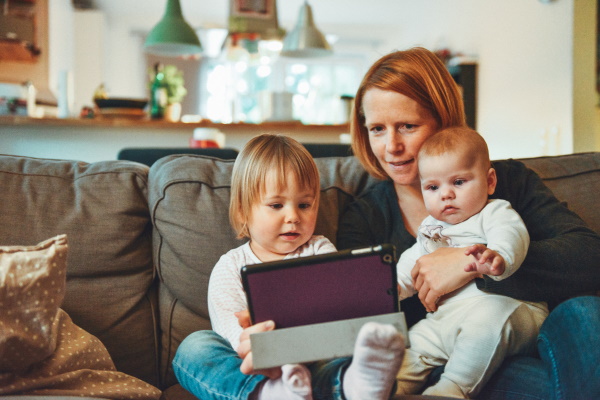10 things you're saying to your child that you didn't know were harmful
 As parents, we want to encourage and support our children in all that they do. However, sometimes the words we choose can have a negative impact on their growth and development. Here are 10 things you should never say to a child.
As parents, we want to encourage and support our children in all that they do. However, sometimes the words we choose can have a negative impact on their growth and development. Here are 10 things you should never say to a child.Great job
While it may seem like a simple way to show our children that we approve of their actions, saying "great job" can actually make them dependent on our approval for validation. Instead, try being more specific and asking them how they feel about their accomplishments.
Practice makes perfect
This phrase puts a lot of pressure on children to strive for perfection, which can be detrimental to their self-esteem. It's more accurate to say that practice makes better, and that it's okay to make mistakes.
You're okay
When children are hurt or upset, telling them that they're okay may not be the best way to comfort them. It can also make them question their own feelings and whether they should be okay. Show empathy and acknowledge their feelings instead.
Hurry up
Telling children to hurry up can create a sense of pressure and stress. Instead, try joining them in the process and encouraging them to take their time.
I'm on a diet
Sharing our own body image issues with our children can have a negative impact on their self-esteem and body image. Instead, focus on the positive aspects of healthy eating, such as having energy and feeling good.
We can't afford that
Telling children that we can't afford something can create a sense of scarcity and lack in their minds. Instead, try redirecting them and explaining that you are saving your money for something else. Or, even better, invite them to think about how to afford it.
Don't talk to strangers
While the intention is to keep children safe, this phrase can be limiting and restrict their ability to navigate social situations. It's more helpful to teach children to be discerning about who to talk to, such as looking for a mother with children or a store employee in uniform.
Be careful
While caution is important, telling children to be careful can also make them fearful and limit their sense of adventure. Instead, help them to understand and manage risks.
No dessert unless you finish your dinner
Using food as a reward or punishment can create negative associations with meals and lead to unhealthy eating habits. Instead, encourage children to listen to their own hunger and fullness cues.
Let me help
While it's important to offer support, constantly stepping in and helping children can prevent them from learning and growing on their own. Instead, offer guidance and let them find their own solutions.
Conclusion
It's important to be mindful of the words we use when communicating with our children. These 10 phrases may seem harmless, but they can have negative effects on children's self-esteem, learning, and development. Instead of using these phrases, try to reframe them in a positive and empowering way. Remember, children are constantly learning from us, so let's make sure we're setting a good example.
 Blog
Blog